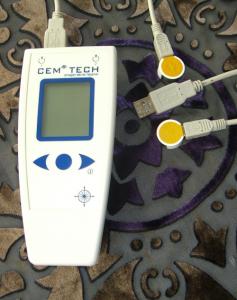Everything You Need to Know About Allergies

Summary:
"Allergies, also known as allergic diseases, are a number of conditions caused by hypersensitivity of the immune system to typically harmless substances in the environment. These diseases include hay fever, food allergies, atopic dermatitis, allergic asthma and anaphylaxis."
Overview:
In March 2020, the Food and Drug Administration (FDA) released a safety alert to warn the public that epinephrine auto-injectors (EpiPen, EpiPen Jr., and generic forms) may malfunction. This could prevent a person from receiving potentially life saving treatment during an emergency. If a person has a prescription for an epinephrine auto-injector, they can view the recommendations from the manufacturer here and talk with their healthcare provider about safe usage.
An allergic reaction occurs when a person’s immune system becomes hypersensitive to certain substances, such as foods, pollen, medications, or bee venom. A substance that causes an allergic reaction is called an allergen. Many allergens are everyday substances that are harmless to most people. However, anything can be an allergen if the immune system has a specific type of adverse reaction to it.
One of the roles of the immune system is to destroy harmful substances in the body. If a person has an allergy to a substance, their immune system will react as though that substance is harmful and will try to destroy it. Over 50 million people in the United States experience an allergic reaction each year. This reaction can lead to symptoms such as swelling. If swelling affects the
airways, it can become life threatening. In this article, learn about the risk factors, symptoms, and treatments associated with allergies.
What is an Allergy?
Allergies develop when a person’s immune system overreacts to substances that are usually harmless. The first time a person is exposed to an allergen, they do not usually experience a reaction. It often takes time for the immune system to build up a sensitivity to the substance.
In time, the immune system learns to recognize and remember the allergen. As it does so, it starts making antibodies to attack it when exposure occurs. This buildup is called sensitization. Some allergies are seasonal. For example, hay fever symptoms can peak between April and May, when the tree and grass pollen count in the air is higher. A person may experience a more severe reaction as the pollen count rises.
Allergies Symptoms
An allergic reaction causes inflammation and irritation. However, the specific symptoms will depend on the type of allergen. For example, allergic reactions may occur in the gut, skin, sinuses, airways, eyes, or nasal passages.
Below are some triggers and the symptoms they may cause in people with an allergy:
Dust and Pollen
a. a blocked or congested nose
b. itchy eyes and nose
c. a runny nose
d. swollen and watery eyes
c. a cough
Food
a. vomiting
b. a swollen tongue
c. tingling in the mouth
d. swelling of the lips, face, and throat
e. stomach cramps
f. shortness of breath
g. rectal bleeding, mainly in children
h. itchiness in the mouth
i. diarrhea
Insect Stings
a. wheezing
b. significant swelling at the site of the sting
c. a sudden drop in blood pressure
d. itchy skin
e. shortness of breath
f. restlessness
g. hives, or a red and very itchy rash that spreads across the body
h. dizziness
i. a cough
j. chest tightness
Allergies Medication
a. wheezing
b. swelling of the tongue, lips, and face
c. a rash
e. itchiness
If Symptoms Become Severe, Anaphylaxis can Develop.
Anaphylaxis Symptoms
Anaphylaxis is the severest form of allergic reaction. It is a medical emergency and can be life threatening. Anaphylaxis can develop quickly, with symptoms appearing within minutes or hours of exposure to the allergen. Research suggests that anaphylaxis most commonly affects the skin and respiratory system.
Some Symptoms Include:
a. hives, flushing, and itchiness
b. difficulty breathing
c. wheezing
d. swelling
e. low blood pressure
f. changes in heart rate
g. dizziness and fainting
h. loss of consciousness
Recognizing these symptoms can be crucial to receiving timely treatment.
Causes
An allergy starts when your immune system mistakes a normally harmless substance for a dangerous invader. The immune system then produces antibodies that remain on the alert for that particular allergen. When you're exposed to the allergen again, these antibodies can release a number of immune system chemicals, such as histamine, that cause allergy symptoms.
Common allergy triggers include:
1. Airborne allergens, such as pollen, animal dander, dust mites and mold
2. Certain foods, particularly peanuts, tree nuts, wheat, soy, fish, shellfish, eggs and milk
3. Insect stings, such as from a bee or wasp
4. Medications, particularly penicillin or penicillin-based antibiotics
5. Latex or other substances you touch, which can cause allergic skin reactions
When an allergic reaction occurs, allergens bind to antibodies that the body produces called immunoglobin E (IgE). Antibodies combat foreign and potentially harmful substances in the body. Once the allergen binds to IgE, specific types of cells - including mast cells - will release chemicals that trigger the symptoms of the allergic reaction.
Histamine is one of these chemicals. It causes the muscles in the airways and walls of the blood vessels to tighten. It also instructs the lining of the nose to produce more mucus.
Risk Factors
People may have a higher risk of allergies if they are under 18 years old or have a personal or family history of asthma or allergies. Some researchers have suggested that those born by cesarean delivery may also have a higher risk of allergies, as they do not have exposure to the mother’s microbiome during childbirth.
You might be more likely to develop an allergy if you:
1. Have a family history of asthma or allergies, such as hay fever, hives or eczema
2. Are a child
3. Have asthma or another allergic condition
Common Allergens
Potential allergens can appear almost anywhere. In theory, a person can have an allergy to any food. Specific components - such as gluten, the protein present in wheat - can also trigger reactions.
The Eight Foods Most Likely to Cause Allergies Are:
a. eggs, especially the whites
b. fish
c. milk
d. peanuts
e. tree nuts
f. crustacean shellfish
g. wheat
h. soy
Some Other Common Allergens Include:
a. pet fur, dander, skin flakes, or saliva
b. mold and mildew
c. medications, such as penicillin
d. insect stings and bites
e. cockroaches, caddisflies, midges, and moths
f. plant pollens
g. household chemicals
h. metals, such as nickel, cobalt, chromium, and zinc
i. latex
Diagnosis
If a person believes that they may have an allergy, their doctor will be able to help them identify what is causing the reaction.
The Person Should be Ready to Explain:
a. any symptoms they have noticed
b. when and how often they occur
c. what seems to cause them
d. any family history of allergies
e. whether or not other household members have a similar reaction
f. The doctor may recommend some tests or refer the person to a specialist.
Allergies Tests
Your doctor might also recommend one or both of the following tests. However, be aware that these allergy tests can be falsely positive or falsely negative. Below Are Some Examples of Allergy Tests:
1. Blood tests: These measure the levels of IgE antibodies to specific allergens in the immune
system.
2. Skin prick tests: A doctor will prick the skin with a small amount of a possible allergen.
If the skin reacts and becomes itchy, red, or swollen, the person may have an allergy.
3. Patch tests: To check for contact eczema, a doctor may tape a metal disc with a small amount
of a suspected allergen to the person’s back. They will check for a skin reaction 48 hours later,
and then again after 2 days.
If your doctor suspects your problems are caused by something other than an allergy, other tests
might help identify - or rule out - other medical problems.
Treatment
The best way to manage an allergy is to avoid the allergen, but this is not always possible. In these cases, medical treatment can help.
Medications
Drugs will not cure an allergy, but they can help a person manage the symptoms of a reaction. Many treatments are available over the counter. Before using a medication, however, a person should speak to a pharmacist or doctor.
Options Include:
1. Antihistamines: These block the action of histamine, which the immune system releases during a reaction.
2. Decongestants: These can help relieve a blocked nose.
3. Corticosteroids: These are available in the form of a pill, cream, nasal spray, or inhaler. They help reduce inflammation.
4. Immunotherapy: This can help a person develop long-term tolerance. A person will take gradually increasing doses of the allergen, either as a tablet or an injection.
5. Leukotriene receptor antagonists (antileukotrienes): These may help with some allergies if other treatments have not worked. The drugs block some of the chemicals that cause swelling.
Treatment for Anaphylaxis
Anaphylaxis is a potentially life threatening medical emergency that may require hospitalization. If a person has difficulty breathing following exposure to an allergen, they will need immediate treatment. This will usually be in the form of an auto-injector.
Using an Auto-Injector
The Food and Drug Administration (FDA) recommend that people at risk of anaphylaxis carry two epinephrine auto-injectors with them at all times. If one dose is not effective, the person will need the second. Use an auto-injector to deliver a measured dose of epinephrine (adrenaline) within minutes of any severe symptoms appearing. Someone should also call the emergency services.
EpiPen is a Common Auto-Injector. When Using an EpiPen, the FDA Advise People to:
1. Hold the injector in one fist, with the orange end pointing downward.
2. Remove the blue safety release with the other hand, without bending, twisting, or making any sideways movements.
3. Swing and push the orange end firmly against the outer thigh, at a right angle to the leg. There will be a click as the needle exits from the orange end.
4. Hold the needle in place for at least 3 seconds.
5. After activation, the orange end will cover the needle, and the window will be blocked. If the needle tip is still visible, do not reuse it.
6. Do not use the thumb to flip off the blue safety release. Always use two hands to prepare the injector.
Incorrectly removing the safety device can cause the injector to release its contents too early. As a result, there may be no medication in the device when a person needs it. The EpiPen is just one type of injector; there are many different versions. All injectors have the same effect, but the ways of using them may differ.
Prevention and Precautions
There is no way to prevent or cure an allergy, but it is possible to prevent a reaction or manage the symptoms if a reaction occurs.
Those at Risk of an Allergic Reaction Should:
a. Take measures to avoid exposure to known allergens.
b. Carry two auto-injectors and know how to use them correctly.
c. Inform friends, relatives, colleagues, and others about the allergy and how to use the auto-injector.
d. Consider wearing a medical identification bracelet with details of the allergy.
e. Seek allergy testing to know which substances to avoid.
Prevention
Preventing allergic reactions depends on the type of allergy you have. General measures include the following:
a. Avoid known triggers. Even if you're treating your allergy symptoms, try to avoid triggers. If, for instance, you're allergic to pollen, stay inside with windows and doors closed when pollen is high. If you're allergic to dust mites, dust and vacuum and wash bedding often.
b. Keep a diary. When trying to identify what causes or worsens your allergic symptoms, track your activities and what you eat, when symptoms occur and what seems to help. This may help you and your doctor identify triggers.
c. Wear a medical alert bracelet. If you've had a severe allergic reaction, a medical alert bracelet (or necklace) lets others know that you have a serious allergy in case you have a reaction and you're unable to communicate.
Lifestyle and home remedies
Some allergy symptoms improve with home treatment:
A. Sinus congestion and hay fever symptoms. These often improve with saline nasal irrigation - rinsing out the sinuses with a salt and water solution. You can use a neti pot or a specially designed squeeze bottle to flush out thickened mucus and irritants from your nose. However, improper use of a neti pot or other device can lead to infection.
B. Household airborne allergy symptoms. Reduce your exposure to dust mites or pet dander by frequently washing bedding and stuffed toys in hot water, maintaining low humidity, regularly using a vacuum with a fine filter such as a high-efficiency particulate air (HEPA) filter and replacing carpeting with hard flooring.
C. Mold allergy symptoms. Reduce moisture in damp areas, such as your bath and kitchen, by using ventilation fans and dehumidifiers. Fix leaks inside and outside your home.
Conclusions:
Allergies occur when your immune system reacts to a foreign substance - such as pollen, bee venom or pet dander - or a food that doesn't cause a reaction in most people. The severity of allergies varies from person to person and can range from minor irritation to anaphylaxis - a potentially life-threatening emergency. While most allergies can't be cured, treatments can help relieve your allergy symptoms.
Your immune system produces substances known as antibodies. When you have allergies, your immune system makes antibodies that identify a particular allergen as harmful, even though it isn't. When you come into contact with the allergen, your immune system's reaction can inflame your skin, sinuses, airways or digestive system.
Best Regards,
Solomon Jacob
(Herbalist & Ayurveda Expert)
** Many Clinical Practice Guidelines Suggest that Some People with Chronic Allergic Symptoms May Benefit from Alternative Medicine Treatments!











